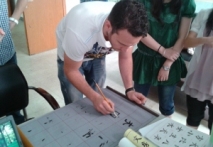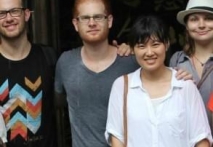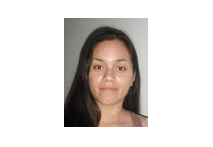Latest News
- Wuxi's Nanchang Street--a historic cultural district that combines classical charm, delicious food, and fun activities
- chinese study
- lastest courses
- Business Assistance/International Consortium of Stem Cell Research
- Foreigner's view of Jiangsu -Changzhou Jintan starts
- estimonials for Our new French Internship student Anais 企业表扬信
- The Double Seventh Festival in China Introduction
- Chinese Proficiency Test (HSK)
- China University Mining and Technology
- Wuxi Library
Students Say
Mandarin Student Zack
Mandarin Education School is a great place to learn Chinese and Chinese Culture.I've learned a lot in this school, my Chine...
Learn Chinese Travel China
If you want to learn Chinese and also discover China, Mandarin Education organize the most funny and cultural study tour.
The...
suzhou Mandarin Jude
I am Jude, I am learning Mandarin in Suzhou Mandarin School,I was learning in Wuxi Mandarin Education too.I like my Chinse Teacher...
chinese class
Improve your reading, speaking and your writing by experiencing our teaching methods,Offer free student Visa.
...
Wuxi Mandarin Jessie
I've learned Chinese for almost 8 years, I can understand what Chinese people say,but when I speak, I feel very uncomfor...
Chinese Internship or Jobs
You are looking for a professional experience abroad? Get the opportunity to discover the Chinese business,Look for an ...
Mandarinedu Student Florent
I love my Wuxi Mandarin Education School. It is the EASY MANDARIN Learning way, I am learning faster than I wanted.My teach...
Mandarin E Learning
Mandarin Education School offers you Online Chinese Courses. It has never been so easier to have Chinese courses ...
Mandarin Student Brad
I am studying Chinese in Mandarin Education School. I can speak quit good Chinese and talk to Chinese people by myself. Thank...
Wuxi Mandarin edu. Student Jennifer
I love learning Chinese in Mandarin Education School.That's a great place to learn and make friends.
...
Add Our School Official
to get more informations

0086 1866 1199 988
0086 510-81151808
Sandy.Swun
519988808
Mandarin Education School
Room 405, 4 Fl,Building No.8,
Maoye Business Center,
Chang jiang No.1,
New district , Wuxi City , China
正反疑问句
“动词+没+动词”的形式表示对已经发生的事情提出疑问,而“动词+不+动词”的形式表示对未发生的事情提出询问。
(1)你去没去图书馆?
(2)你去不去图书馆?
(3)你听没听天气预报?
(4)你听不听天气预报?
除了“动词+没+动词”形式的正反疑问句以外,还有“有没有+动词”和“动词+(宾语)+了没有”两种正反疑问句句式,表达同样的意思。
(1)你有没有听天气预报?(你听天气预报了没有?)
(2)你有没有去图书馆?(你去图书馆了没有?)
(3)你有没有给手机充电?(你给手机充电了没有?)
Negative questions
The verb + no + verb form means to question what has happened, while the verb + no + verb form means to question what has not happened.
Did you go to the library?
Do you go to the library?
Have you listened to the weather report?
Do you listen to the weather forecast?
In addition to "verb + no + verb" positive and negative questions, there are "no + verb" and "verb + (object) + no" positive and negative questions to express the same meaning.
Have you listened to the weather report? Have you heard the weather forecast?
Did you go to the library? Did you go to the library?
(3) have you charged your phone? Have you charged your phone yet?
찬반 의문문
동사+무+동사는 이미 일어난 일에 대해 의문을 제기하는 형식을 나타내고 동사+불+동사는 일어나지 않은 일에 대해 묻는 형식을 나타낸다.
(1) 도서관에 가지 않았습니까?
(2) 도서관에 갈꺼니?
(3) 일기예보를 듣지 않았니?
(4) 일기예보를 듣지 않는다고?
"동사+무+동사" 형식의 정반 의문문 외에 "+동사가 있느냐"와 "동사+( 목적어)가 있느냐 없느냐"라는 두 가지 정반 의문문구식이 있는데, 같은 표현이다.
(1)일기예보를 들었습니까?
(2)도서관에 가셨어요?
(3)당신은 휴대폰을 충전했습니까?










